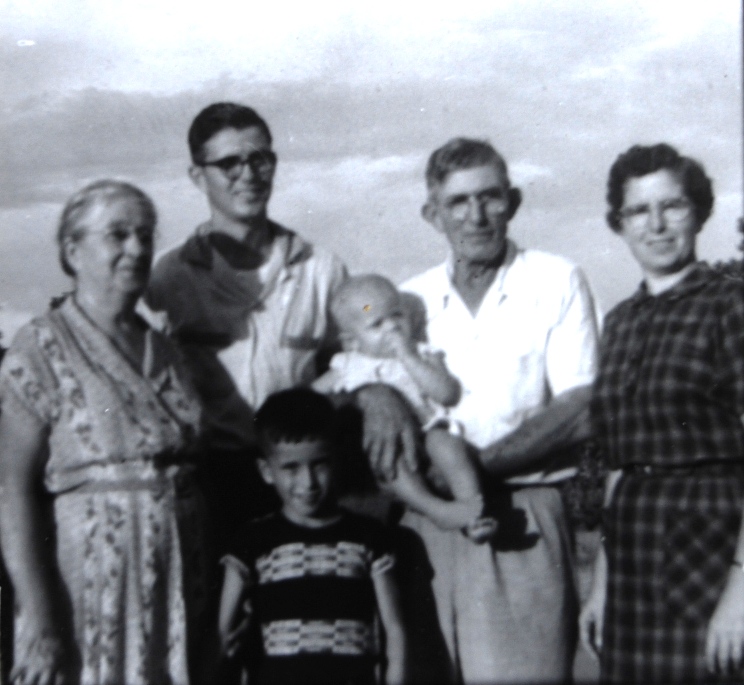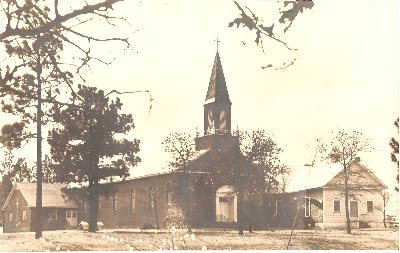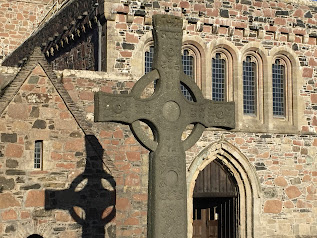Jeff Garrison
Bluemont and Mayberry Churches
November 7, 2021
2 Timothy 3:10-17
At the beginning of worship: Scripture
Today we’re continuing looking at the key beliefs for those of us within the Reformed or Presbyterian tradition. Last Sunday, we began with God. Faith starts with the Almighty. I also looked at one of our important Reformers, John Calvin, and what he had to say about God. God has shown us his grace throughout history. God comes first, even before anything is written down.[1]
Our theme is Scripture. I will parallel my thoughts while drawing on the life of another Reformer, Martin Luther. But first, let me say something about Scripture and Theology. Some people think Scripture should come first, before a doctrine of God, but I disagree.[2] If we put the Bible before God, we’re risk making an idol out of the Scripture. Idols, whether of a book or of stone, are forbidden. We don’t worship the Bible. We worship God revealed in Jesus Christ, of whom we learn about through the Scriptures.
Because Scripture teaches about God and our human condition, it plays an important role in our faith. The authority of the Bible comes from the one who inspired it. But it wasn’t always this way. Before the great awakening of the church in the 16th Century, known as the Protestant Reformation, the Western Church held to multiple sources of truth: the Bible, the church, and tradition. In time, errors seeped into the church, leading Martin Luther to proclaim that only scripture held ultimate authority and that the pope and church councils are fallible. This didn’t go over well in some corners. However, Luther ideas spread throughout Europe challenged the established hierarchy.
Introduction to Martin Luther
Unintentionally, Luther began the church that now bears his name, but he also placed his stamp on the entire Protestant Reformation.
Unlike the Swiss Reformers, such as Calvin whom I wove into my sermon last week, Luther didn’t want to leave the Catholic Church. He believed if he could demonstrate the Pope the church’s errors, things would changed. But the church, it seems, always resist change and Luther found himself at the head of a new movement.
Early in his ministry, Martin Luther had a troubled soul. It bothered him that he might forget and leave some sin unconfessed and thereby assigned to perdition. Luther’s early belief wasn’t in a God of grace. In reading the book of Romans, a light flashed in his brain. He experienced God’s grace. Luther developed a faith in God’s goodness as opposed to his own good works. He understood that scripture, God’s revelation to us, trumped all human authority.
The bumper sticker, if they’d had them in the 16th century, on Luther’s carriage would have read: “Grace alone, Faith alone, and Scripture alone.[3] In other words, Scripture tells us we’re saved by God’s grace through faith… This doesn’t mean that things like tradition or the ordering of the church weren’t important. They were and still are, it’s just that they’re just not authoritative. Scripture, God’s revelation, is our source for authority. This concept united the German and Swiss Reformers.
I should say one other thing about Luther and the Bible. Gutenberg had invited the moveable-type printing press only 70 years before Luther began his ministry. This was an era when literacy was on the rise and for the first time in the history of the world, books including Scriptures, were cheap enough that common people could own them. This technological change fed the Reformation.
Today, my focus is on the role of Scripture and our text is from Paul’s second letter to Timothy.
After reading the Scripture
When I was a child, I idolized Dennis the Menace. In one cartoon, his Sunday School teacher asks him to name things found in the Bible. Dennis ponders for a minute and then responds: “my baby picture, dried up flowers, an’ a piece of bacon that I’ve been saving.” I am sure we have all placed important things that we don’t want to lose in the Bible, which in a way shows our reverence to this book even if it isn’t its intended purpose. We know that such things are safe there!
As a family, we always had such a Bible in the living room. It probably weighed twenty pounds. We read it on Christmas Eve. Lighter Bibles were used for general reading. However, I remember my mother remarking that we need to dust the Bible just in case the preacher came by (I can assure you I never look for dust on the Bible when I visit).
And then there was a kid asked by his mom when the preacher visited to “bring that big book I’m always looking at.” To her horror, her son brought her Sears and Roebuck’s catalog. Of course, it’s been a while since there was a Sears “Big Book.” To liberally paraphrase Isaiah, “catalogues come, catalogues go, but the Word of God stands forever.”[4]
Luther and the Diet of Worms
Back to Luther. Did you hear about him and the Diet of Worms?[5]Thankfully it had nothing to do with weight loss. However, I’m sure such a diet would be an effective weight loss program, for everything but robins.
The Diet of Worms was a meeting of the German princes with Martin Luther. There, he refused to recant his teachings. Luther was on the fast track to his own barbecue. To save Luther, Fredrick, one of Luther’s supporters, had him “kidnapped” and took him to the Wartburg Castle. There, disguised as a knight, Luther studied and wrote. He produced a German translation of the New Testament. He felt people needed to have access to God’s word in their own tongue.
Suffering for God
I’m sure that during this period of his life, when the Reformation was young and the danger was real, Luther could identity with Paul when he writes about his persecutions and sufferings? Paul calls on Timothy to observe his teachings and actions, noting how he remained steadfast through his suffering, and then credits the Lord for rescuing him. Like Paul, it seems that early in the Reformation, the more Luther was attacked and the more danger he faced, the more certain he became of his beliefs.
In Luther’s case, the Lord worked through a German prince to save his life and to allow him the freedom to expand the Reformation by the publication of a Bible in the vernacular, in the common language of the people. As we are reminded in verse 12, persecution may come to those who desire to live a godly life, yet we are to endure and to remain steadfast in our faith.
Timothy’s background
In verses 14 and 15, we are informed that Timothy, to whom this letter was addressed, had a similar background to many of us. He had been brought up in the faith. He had attended church and Sunday School and the youth group or their equivalent. He knew the sacred writings. His training is credited to his mother and grandmother, Eunice and Lois.[6]We, too, have had others who have instructed us in the Scriptures and to them we should honor and give credit for the gift they’ve given us.
Scripture takes precedent over human authority
The highlight of this passage is in verses 15 and 16 which reminds us that Scripture leads us to faith in Jesus Christ. Scripture takes precedent over all human authority including the church. The Presbyterian Church proclaims this. The Bible trumps both the Book of Order and the Book of Confessions. Those other books aren’t sacred. They are referred to as “subordinate standards,” “subject to the authority of Jesus Christ, the Word of God, as the Scriptures bear witness to him.”[7] The confessions can help us interpret Scripture but cannot replace it.
The inspiration of Scripture
“All scripture is inspired by God,” we’re told in this passage. Let’s unpack this a bit. For Timothy and his contemporaries in the middle of the first century, scripture was the Hebrew Bible or what we know as the Old Testament. The New Testament, such as this letter, was in the process of being written. But in time, the new canon came into being and the church applied this teaching to both the old and the new. Those of us within the Reformed Tradition see them as equally important. Both testaments contain revelation of God.
This is the reason most Presbyterians have two candles on the communion table and our seal has two flames beside the cross. One candle (or flame) is for God’s revelation in the Old Testament as symbolized in the burning bush. The other candle represents the New Testament and God’s ongoing revelation in Jesus Christ that continues with the Spirit which showed up on Pentecost as flames. So, when we read all Scripture, we can assume this means the entirety of the Bible.
The second item in this phrase, “inspired by God,” also needs to be explored. The word “inspired” comes from the Greek and can be literally translated as “breath.”[8] We read in the creation account of God giving breath to Adam. Through Scripture, God also gives a breath by inspiring those who wrote the Scriptures. Furthermore, through the inward work of God’s Spirit, the Bible is “God’s Word in our hearts.”[9]
The Purpose of Scripture
This passage concludes with a list of things for which scripture is to be used. It doesn’t say that the Holy Book is a science textbook. The Bible doesn’t give us all answers. And it certainly is not to be used as a weapon. Some Christians need to learn this.
Instead, Scripture teaches us about God and ourselves.[10] It shows us where we are wrong so that we might realize our path and be brought into God’s grace. It helps us understand what God has done for us in Jesus Christ. Even after we have been brought into God’s fold through the forgiveness of our Savior, Scripture helps us along the path toward sanctification—as we strive to live in a manner that will honor and be pleasing to God. In the end, through the study of scripture, Scripture equips to do God’s good works in the world.
The Bible is a gift from God. In it, we learn about God’s goodness and love and about our role in God’s world and coming kingdom. If we are to be truthful to our calling as Christ followers, we must study and struggle with Scripture, praying for God’s Spirit to guide us.
The need for Bible Study
We should all be involved in a Bible study. The study of this Bible isn’t something we only do by ourselves late at night as we try to fall asleep. It should also be done with others who seek out God’s will for their lives. Seek out such a study or start a new one. If you need resources or guidance, talk to me. Digging into Scripture is a way to encounter our gracious God and to learn our place in the world.
There was an old Jewish tradition that when a student starts to study the Scriptures, the rabbi drops a bit of honey on the student’s tongue as a reminder that God’s word is sweet. It is life! It’s the sweet life! Embrace it and live. Amen.

[1] The classic case of this is the Exodus and the giving of the law at Sinai. The people experienced grace before God gave the rules of the covenant.
[2] An example of putting Scripture first is the Westminster Confession of Faith, that begins with the canonical books of Scripture. Calvin, in his Institutes of the Christian Religion started with God. Karl Barth was even more clear, starting with God’s actions in Jesus Christ.
[3] I adapted this joke from a comment made by Jack Rogers in a video on the “Essential Tenets”.
[4] Isaiah 40:8 (The grass withers, the flowers fade, but the Word of God stands forever.)
[5] Diet is the name of the German Legislative Assembly. Before modern German, the meeting consisted of princes.
[6] 2 Timothy 1:5
[7] Presbyterian Church, USA, Book of Order, F-2.02
[8]J.N.D. Kelly, A Commentary on the Pastoral Epistles: Timothy 1 & 2 and Titus (Hendrickson, 1960), 203
[9] Presbyterian Church, USA, Westminster Confession of Faith, Book of Confession 6.005.
[10] The third question in the Westminster Shorter Catechism asks, “What do the Scriptures principally teach?” The answer: “Scriptures principally teach what we are to believe concerning God, and what duties God requires of us.”










